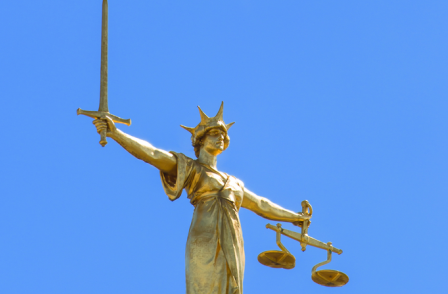
The judge who decided that men being made subject to injunctions banning them from having contact with a girl they were alleged to have exploited sexually could be identified in the media has said he was "extremely surprised" at the stance taken by West Midlands Police.
He ruled that the men could be named after journalists argued that the public had a right to know. But West Midlands Police and some of the men had argued against allowing them to be named in press and broadcast reports.
The men – who have not been convicted of criminal offences relating to the girl – said they feared reprisals, embarrassment and suffering for their families.
Police said they had concerns for men's safety if identifies were revealed and photographs published.
Mr Justice Keehan, who dealt with the case, said in a ruling published yesterday: "I was given a copy of a risk assessment which had been undertaken by the police.
"I was told the risk of harm to each of the respondents was high. That was based on the fear of reprisal attacks by right wing racist organisations or by members of the local community.
"I was extremely surprised at the stance taken by the police. When I pressed for the factual basis upon which the risk assessment had been made, I was told there was none, the risk was unknown but based on experience, the risk was high.
"I regret I do not understand that analysis at all."
Police had also argued that there was a risk of members of the public being misidentified as the men and being attacked.
"I regret that submission makes no sense to me at all," said Mr Justice Keehan.
"The surest way of eradicating or ameliorating the risk of misidentification is ensuring the fullest possible details of each of the (men), including photographs, are made public and given wide coverage by the media."
Another argument put forward by police was "similarly surprising and as a matter of law, completely wrong", he went on.
"It was submitted that details of the (men) and the findings of the court should be made known on a 'need to know' basis and to do so would increase the efficacy of the injunctive orders.
"Such an approach may well be appropriate in a joint operation between the police and other public safeguarding bodies.
"It is not the proper approach to be taken when a court is considering whether the media should be restricted in the reporting of proceedings held in open court."
The judge said Press Association legal editor Mike Dodd had "vehemently" argued that there was "no good reason" for the imposition of reporting restrictions, and that the case was "exceptional" and the public had a right to know what had taken place in open court proceedings.
"In my judgment the evidence of the risks to these (men) if there is publicity about this case is, at best, speculative," said Mr Justice Keehan.
"The reality is that whether there is a risk of harm or the degree and nature of the same is simply unknown.
"I am not satisfied that there is any credible evidence that there is a risk to the life of any respondent to these proceedings."
He added: "There is some risk that some members of the local community or extremists might seek to harm one or more of the (men). It is for the police to address that risk and to take reasonable steps to ensure public order in accordance with their general duties to their local communities.
"Publicity about these (men) may cause embarrassment, distress or anxiety to the respondents or to members of their respective families and friends.
"Such would not have occurred if they had not engaged, as I have found they did, in the sexual exploitation of a vulnerable young female."
He added: "The sexual exploitation of young females by much older men attracts very considerable and widespread public interest. The extent of such activities around the country is only now emerging.
"I am satisfied that there are exceedingly powerful arguments in favour of the public knowing the details of cases of child sexual exploitation and in respect of proceedings held in open court."
The West Midlands Police force said after the hearing at which reporting was discussed that it would not release photographs of the men to the media or make images public.
A spokeswoman said in a statement that details of the men – including their photographs – would be shared with social workers, police officers and other ''key individuals'' to allow the policing of the injunctions.
Detective Chief Superintendent Danny Long, head of West Midlands Police's public protection unit, said the men's details would be ''shared in the right places with the right people'', adding: "We are duty bound to act proportionately to the threat the men currently pose to the girl and possibly others.
"We also have a duty to consider the impact of releasing the men's images on innocent family members, which include their partners and their own young children."
Email pged@pressgazette.co.uk to point out mistakes, provide story tips or send in a letter for publication on our "Letters Page" blog
